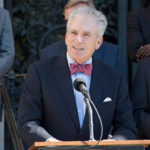North Carolina’s new school voucher law—which allows families to use taxpayer dollars to send their children to private schools—violates the constitutionally mandated separation of church and state, the Baptist Joint Committee for Religious Liberty and allies said in a brief to the state Supreme Court. Two friend-of-the-court briefs written by attorneys representing Americans United for Separation of Church and State contend the Opportunity Scholarship Program passed by the North Carolina General Assembly in 2013 violates the state constitution by siphoning taxpayer funds intended for public education to private schools, which are not subject to curriculum standards of public schools and which discriminate on the basis of religion or other factors. Since the vast majority of schools receiving the vouchers are church-related, the brief argues, the program amounts to government funding of religious ministry. “Parents have the right to choose a religious education for their children, but not at taxpayer expense,” said Holly Hollman, BJC general counsel. “Religion should flourish on its own, funded by voluntary contributions, not through compulsory taxation.” An opposing brief filed by groups including the Christian Legal Society, American Association of Christian Schools, National Association of Evangelicals and Roman Catholic Diocese of Charlotte (N.C.) countered the state provides scholarships on a religion-neutral basis, and the parent decides whether to use them at a religious school.
D.C. Baptists tap longtime employee as director. The District of Columbia Baptist Convention board of directors elected Robert Cochran, a 20-year convention employee, as executive director. Robert CochranCochran, associate executive director of the 150-church convention aligned with multiple national groups in a united Baptist presence in the nation’s capital, is expected to take office in February. Cochran began working at the D.C. convention two decades ago as director of missions and evangelism under appointment of the Southern Baptist Home Mission Board. He also worked in discipleship, congregational health, and church and community ministries. A native of Baytown, Cochran is a graduate of Howard Payne University with both the master of divinity and doctor of philosophy degrees from Southern Baptist Theological Seminary in Louisville, Ky. He has been active in the Baptist World Alliance and is treasurer of the North American Baptist Fellowship, one of six regional fellowships comprising the worldwide fellowship of 40 million Baptists in 121 countries. His wife, Deborah Cochran, is acting pastor at First Baptist Church in Washington, where another former convention executive, Jeff Haggray, resigned in 2013.
Trouble continues at Georgia Baptist school. The week after Brewton-Parker College President Ergun Caner resigned citing the emotional and physical toll of his son’s recent suicide, Vice President C.B. Scott said he was fired after refusing to resign. Prior to a Caner’s resignation, Scott asserted he turned down the president’s request to help him “restore his credibility” at the college, alluding to “alleged inappropriate racial remarks” made by Caner that were reported to a trustee but not mentioned when Caner resigned Jan. 20. Board Chairman Gary Campbell said trustees investigated three reports of racial, vulgar and derogatory comments used by Caner in private conversations and a fourth “allegation of inappropriate behavior.” Evidence was inconclusive in the first three allegations, Campbell said, but during questions about the fourth, Caner stated he “no longer had the will or energy to fight” and had made the decision to resign. At that point, Campbell said, the trustees discontinued their investigation. Campbell insisted the decision to terminate Scott’s contract was his as acting president, and it was because of an infraction of business policy about how grievance information is distributed within the chain of command. Campbell subsequently tendered his own resignation from the board both “in the best interest of the school and myself personally.”
SBC annual meeting attracts younger participants. Attendance by younger generations reached a 10-year high at the Southern Baptist Convention’s 2014 meeting in Baltimore, according to a survey of participants. The survey, conducted by the SBC Executive Committee, showed nearly one-fourth (24.68 percent) of attenders were younger than age 40. That surpassed by more than 4 percentage points the previous best for the age group, recorded in 2013. The 2014 survey also showed 10-year highs for SBC annual meeting attenders who are under 45 (33.44 percent, a gain of more than 3 percent over the previous high in 2013) and under 35 (15.93 percent, an increase of more than 3 percent over the earlier high in 2012).















We seek to connect God’s story and God’s people around the world. To learn more about God’s story, click here.
Send comments and feedback to Eric Black, our editor. For comments to be published, please specify “letter to the editor.” Maximum length for publication is 300 words.